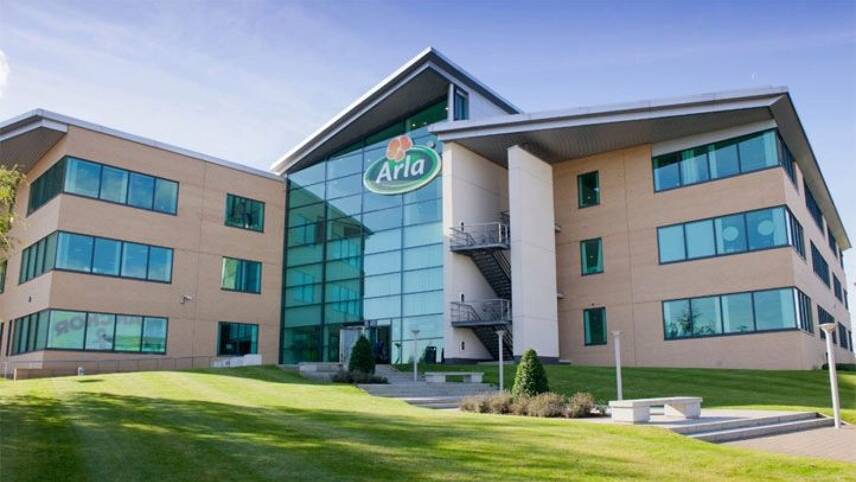Register for free and continue reading
Join our growing army of changemakers and get unlimited access to our premium content

The new target has been approved by the Science Based Targets initiative
Arla Foods had been targeting a 30% reduction in emissions across its operations. But, having reduced emissions by 24% since 2015, the company has updated its targets and is now striving to reduce emissions by 63% by 2030.
According to Arla, the new target has been approved by the Science Based Targets initiative (SBTi) as consistent with reductions required to keep global warming to 1.5°C.
Arla Foods UK managing director Ash Amirahmadi said: “Arla is one of only 59 food and beverage processors globally and one of the first farmer-owned dairy cooperatives in the world to have a 1.5°C target approved by the Science Based Targets initiative (SBTi).
“The demand for dairy across the world continues to increase as we tackle issues of food poverty and malnutrition. With Arla’s farm owners already among the most carbon-efficient farmers in the world, it is right that we also show leadership in reducing carbon emissions across the production and operational side of the cooperative.”
Arla has confirmed that its total investments into sustainability will reach £3.3bn over the next five years to help reach the new target.
Investments will be focused on the conversion of Arla’s owned fleet of milk tankers and distribution trucks to fossil-free solutions through biodiesel, biogas and electric vehicles (EVs) and optimised route planning. Additionally, Arla will focus on converting to 100% renewables across its European electricity procurement through power purchase agreements. Heat recovery solutions, boiler electrification and optimisation of electrical powered equipment will also be prioritised.
Arla has confirmed that the existing 30% targets will stay in place for Scope 3 emissions, which continues to align with SBTi recommendations. The SBTi is expected to launch new sector guidance in 2022 for Forest, Land and Agriculture and Arla will review its Scope 3 target.
Data and farmers
Arla has focused on data analytics to help progress towards its net-zero target. The company has completed what it claims is one of the biggest analyses of data on Scope 3 (indirect) carbon emissions in the dairy sector globally.
Arla received and analysed data from more than 8,100 supplier farms last year, relating to metrics such as what kinds of fuels are used, how many animals are owned, what they are fed, which fertilisers are used and how waste is managed. Using ‘big data’ analysis verified independently, verified average carbon figures were generated.
These averages will help Arla identify what kind of support farmers need to deliver its 2050 net-zero goal, underpinned by a science-based target to reduce emissions per kilo of milk by 30%.
Last year, the company also outlined new measures to help farmers across the supply chain generate their own renewable energy and sell any excess.
The business introduced what it describes as a “circularity loop” for the farmers, enabling them to sell Renewable Energy Guarantees of Origin (REGO) certificates directly to Arla. REGO certificates guarantee that one MWh of electricity has been produced from renewable energy sources and can be traded, often to third-party utility firms or end-user businesses that are looking to meet their own climate targets.
Arla claims that, by buying the REGOs directly from farmers, farmers will receive a better profit, as there are no costs associated with third-party processes. In this way, it hopes to encourage farmers that already self-generate to increase their capacity, and those without onsite generation to explore this opportunity.
By buying REGOs, Arla can effectively offset non-renewable electricity use in its own operations. It already purchases REGOs equivalent to around one-third of its total annual electricity demand for operations.
Arla farmers have reduced emissions by 7% since 2015 with more than 90% of Arla farmers participating in carbon footprint reporting.
Matt Mace


Please login or Register to leave a comment.